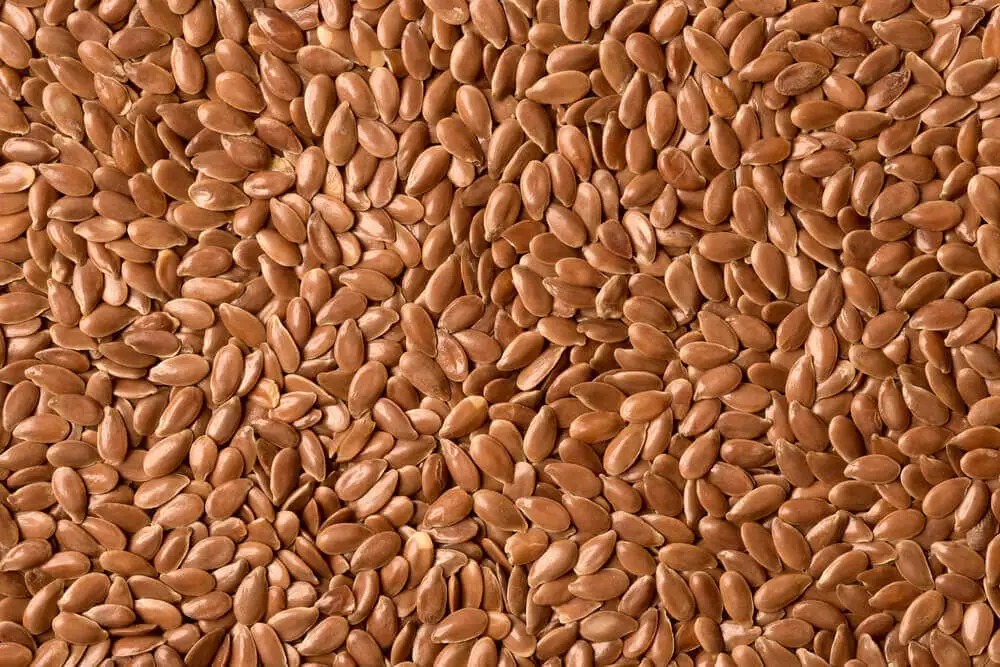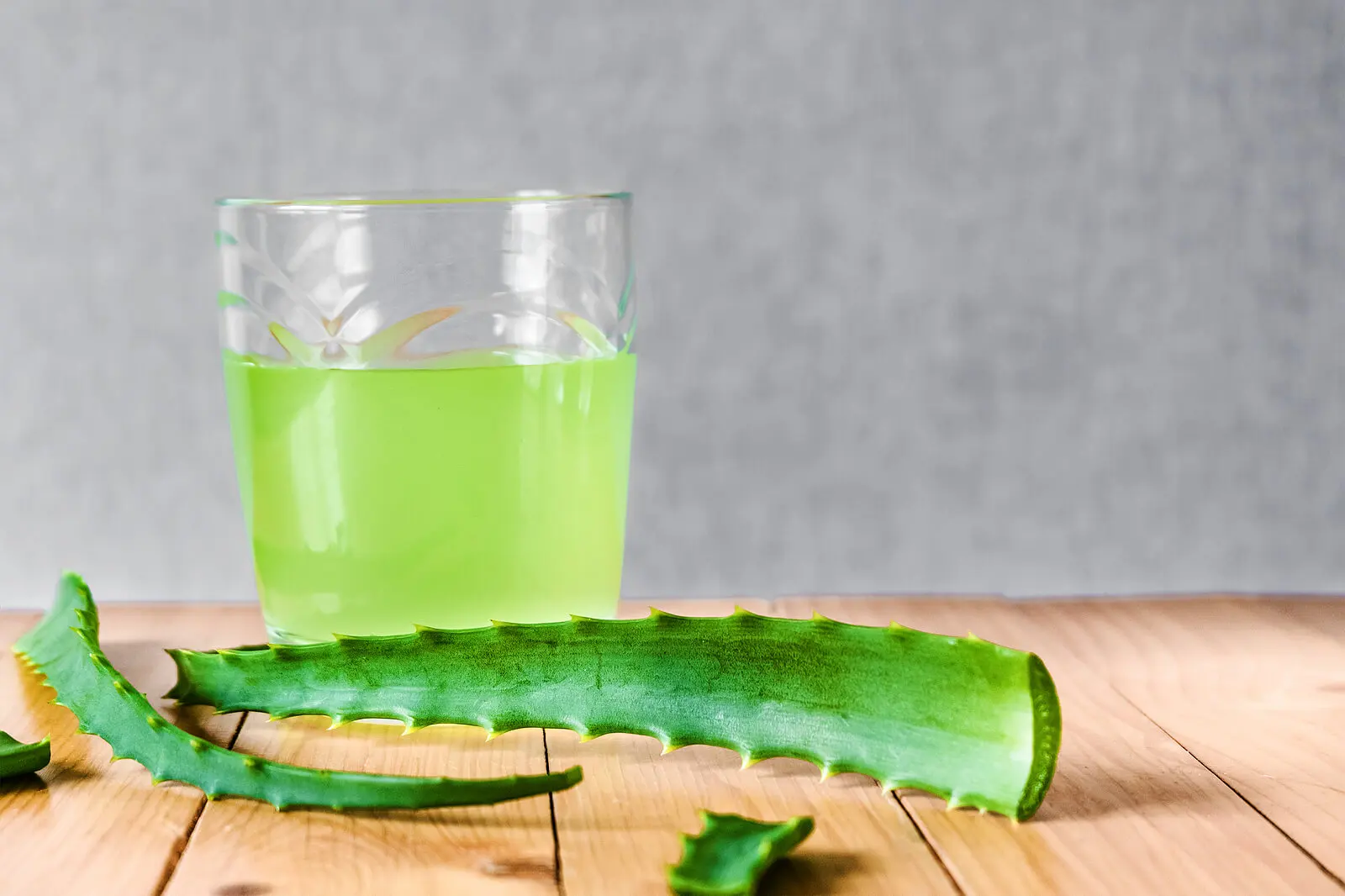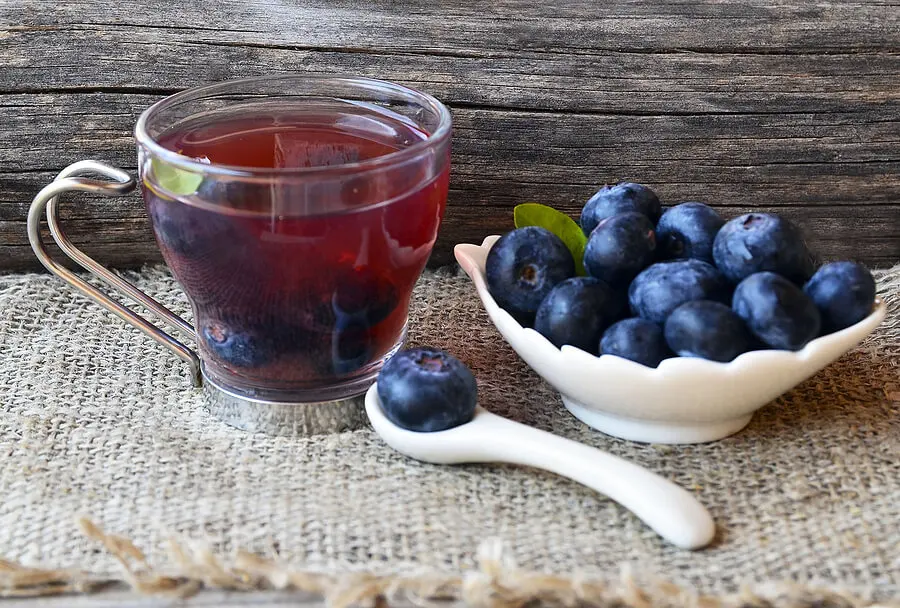7 Ways to Reduce Protein in Urine Naturally

Has your doctor told you that you have too much protein in your urine? This condition is called proteinuria and it’s important to treat it properly from the moment it’s first detected, as it can be an indication of kidney problems. We’ll tell you how to reduce protein in urine naturally in this article.
So, take a look at the natural methods we’ll bring you today to combat this problem. If your doctor authorizes them, you can use them as a complement to what they prescribe.
Protein in urine
To begin with, remember that the job of the kidneys is to filter different body fluids and nutrients, including protein. Protein molecules are usually very large. This can cause the kidneys to have difficulty in filtering them, so some molecules pass into the urine. However, the problem arises when large amounts of protein pass into the urine and in a concentrated form.
According to MSD Manual experts, “proteinuria is the presence of protein, usually albumin, in the urine…. In many kidney disorders, proteinuria occurs along with other abnormalities (e.g., hematuria)” and they explain that isolated proteinuria is the presence of protein without other urinary symptoms or abnormalities.
Here are the possible causes of this problem.
Causes of protein in the urine
As mentioned above, the presence of protein in urine isn’t uncommon, but the following conditions increase the possibility:
- Diabetes
- Leukemia
- Dehydration
- Rheumatoid arthritis
- Heart disease
- Polycystic kidney disease
- High blood pressure or hypertension
- Consuming drinking water that isn’t safe to drink.
Find out more here: The Presence of Nitrites in Urine
Symptoms of proteinuria
If you haven’t had a urine test, but think you might have proteinuria, then you should bear in mind that there are two main symptoms:
- Swelling of the hands and feet
- Foamy or soapy urine
Some people have no symptoms at all. Because of this, you should have a urine test so your doctor can either determine if you have the problem or rule it out.
Control the presence of protein in your urine
If you’re wondering how you can naturally reduce protein in your urine, the best way to do it is to watch what you eat. It’s important to have a balanced diet and avoid foods that overwork your kidneys. Along with this, you should follow the doctor’s recommendations and maintain adequate hydration.
Here we’ll talk about the best foods to combat this problem. We’ll also share some home remedies that will benefit the condition of your kidneys and their proper functioning.
1. Soy protein
Soy protein helps reduce protein in the urine. Being a much softer protein than animal protein it also slows down the progression of kidney damage when problems already exist.
However, you have to be very careful when choosing it. The idea here is to add soy protein to your diet, but not to completely eliminate other types of protein.
- You also need to watch out for the amount of sodium present.
- When buying products that say they’re high in soy, make sure they have as little salt as possible, especially if you already have kidney problems.
2. Flaxseed

Discover more in this article: What the Color of Urine Says About Your Health
3. Limit your sodium intake
People who have kidney problems and excess protein in the urine should be sure they don’t consume more than 2300 milligrams of sodium per day. This would be the equivalent of one teaspoon of salt.
Instead, you can opt for other types of condiments to enhance the flavor of dishes. For example, lemon, vinegar, spices, herbs, etc.
4. Monitor blood sugar
It’s important to keep your blood sugar levels low. This is essential because high glucose levels tend to damage the kidneys. For this reason, you need to limit sugar and refined carbohydrates. You should do this even if you haven’t been diagnosed with diabetes.
Try to include plenty of high-fiber foods such as:
- Fruit
- Vegetables
- Legumes
- Whole grains
- Nuts and seeds
5. Aloe vera and grapefruit juice

This combination is also cleansing and very beneficial for the body in general. You can consume this drink as long as your doctor authorizes it. Keep in mind that aloe vera has a laxative effect and for that reason you should proceed with caution.
Ingredients
- ½ cup aloe vera gel (125 ml)
- Juice of 1 ½ grapefruit (100 ml)
- 1 teaspoon honey (7.5 g) (optional)
Preparation
- To begin, extract the aloe vera gel from the stalk or buy some.
- Next, wash and peel the grapefruits and extract the grapefruit juice.
- Finally, put both ingredients in a blender and blend for two minutes, until well integrated.
- If you wish, add a little honey to sweeten the juice.
Take a look at this article: Is it Good to Eat a Grapefruit on an Empty Stomach?
6. Carrot juice
If you don’t fancy the previous option, or if you get bored of drinking it, you can try the following remedy: carrot juice to naturally reduce protein in the urine.
Ingredients
- 1 cucumber
- 1 orange
- 2 apples
- 4 carrots
- 2 cloves of garlic
- 2 tablespoons of fresh thyme (20 g)
Preparation
- First, process the two cloves of garlic and the thyme.
- Then add the rest of the ingredients, either in a juicer or blender.
- Blend until everything is very well integrated and consume.
7. Cranberry juice

Ingredients
- ½ cup water (125 ml)
- 1 cup of cranberry juice (250 ml
- 1 tablespoon lemon juice (10 ml)
Preparation
- Mix all the ingredients together and serve.
- If you wish, you can add a little ice.
As you can see, these are some fruits, vegetables and legumes that you can consume in moderation in your diet to improve your kidney health and, at the same time, vary your meals.
Remember that if you have any questions about how to maintain a healthy diet, you can always consult your doctor or nutritionist.
All cited sources were thoroughly reviewed by our team to ensure their quality, reliability, currency, and validity. The bibliography of this article was considered reliable and of academic or scientific accuracy.
- Borges, C. M., Papadimitriou, A., Duarte, D. A., Lopes de Faria, J. M., & Lopes de Faria, J. B. (2016). The use of green tea polyphenols for treating residual albuminuria in diabetic nephropathy: A double-blind randomised clinical trial. Scientific Reports, 6, 1-9. https://www.nature.com/articles/srep28282
- Campbell, K. L., & Rossi, M. (2014). Salt, protein, phosphate and sugar: nutrition trends in kidney disease. Renal Society of Australasia Journal, 10(3), 141-145. https://search.informit.org/doi/abs/10.3316/informit.745813123720917
- Chewcharat, A., Chewcharat, P., Rutirapong, A., & Papatheodorou, S. (2020). The effects of omega-3 fatty acids on diabetic nephropathy: A meta-analysis of randomized controlled trials. PLoS One, 15(2), 1-18. https://journals.plos.org/plosone/article?id=10.1371/journal.pone.0228315
- Cirillo, M., Cavallo, P., Zulli, E., Villa, R., Veneziano, R., Costanzo, S., Magnacca, S., Di Castelnuovo, A., Iacoviello, L., & on behalf of Moli-Sani Study Investigators. (2021). Sodium Intake and Proteinuria/Albuminuria in the Population—Observational, Cross-Sectional Study. Nutrients, 13(4), 1-12. https://www.mdpi.com/2072-6643/13/4/1255
- Mendoza, E. G. (2019). Efecto nefroprotector de la ingesta del zumo de raíz Daucus carota (zanahoria) variedad morada en la toxicidad inducida por gentamicina en ratas [Tesis de pregrado, Universidad Nacional Mayor de San Marcos]. Repositorio Institucional Universidad Nacional Mayor de San Marcos. https://cybertesis.unmsm.edu.pe/item/33e479a8-80b3-47e2-8436-27406429dbcd
- Ebrahimi, B., Nazmara, Z., Hassanzadeh, N., Yarahmadi, A., Ghaffari, N., Hassani, F., Liaghat, A., Noori, L., & Hassanzadeh, G. (2021). Biomedical features of flaxseed against different pathologic situations: A narrative review. Iranian Journal of Basic Medicine Sciences, 24(5), 551-560. https://pmc.ncbi.nlm.nih.gov/articles/PMC8244609/
- Haider, M. Z., & Aslam, A. (2023). Proteinuria. StatPearls. https://www.ncbi.nlm.nih.gov/books/NBK564390/
- Malekmakan, L., Hamidianjahromi, A., Sayadi, M., & Rezazadeh, M. H. (2022). Efficacy and Safety of Turmeric Dietary Supplementation on Proteinuria in CKD: A Systematic Review and Meta-analysis of RCT. Iranian Journal of Kidney Diseases, 16(3), 153-161. https://www.ijkd.org/index.php/ijkd/article/view/6772/1375
- National Kidney Foundation. (s.f.). Albuminuria (proteinuria). Consultado el 10 de diciembre de 2024. https://www.kidney.org/es/kidney-topics/albuminuria-proteinuria
- National Kidney Foundation. (26 de octubre de 2023). ¿Cuánto sodio es seguro para los pacientes renales? https://www.kidney.org/es/news-stories/cuanto-sodio-es-seguro-para-los-pacientes-renales
- Patel, S. (2014). Blueberry as functional food and dietary supplement: The natural way to ensure holistic health. Mediterranean Journal of Nutrition and Metabolism, 7(2), 133-143. https://content.iospress.com/articles/mediterranean-journal-of-nutrition-and-metabolism/mnm013
- Rafieian-Kopaei, M., Beigrezaei, S., Nasri, H., & Kafeshani, M. (2017). Soy Protein and Chronic Kidney Disease: An Updated Review. International Journal of Preventive Medicine, 8(1), 1-6. https://journals.lww.com/ijom/fulltext/2017/08000/Predictors_of_Smoking_among_the_Secondary_High.102.aspx
This text is provided for informational purposes only and does not replace consultation with a professional. If in doubt, consult your specialist.








